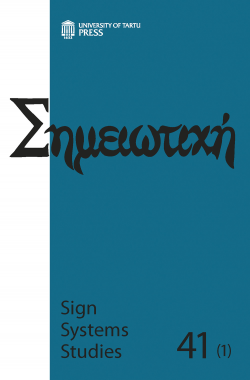Qualitative evaluation of semiotic-based intercultural training
DOI:
https://doi.org/10.12697/SSS.2013.41.1.07Keywords:
applied semiotics, intercultural education, qualitative research, semiotic trainingAbstract
This second of a two-part series of articles on applied semiotics and intercultural training provides a qualitative evaluation of the research initiative Tools for Cultural Development. The discussion will firstly centre on several theoretical and methodological challenges inherent to the qualitative research paradigm and then relate these shifting concerns to convergent findings in poststructuralist (and postcolonial) semiotics, especially with respect to phenomenology and pragmatics. Analysis of four focus group interviews in France and Australia will examine and evaluate the 2007 training experience in light of the culture-specific contexts and stakeholder groups involved. Of particular concern will be the capacity of qualitative evaluative processes to account for the "local meanings" and "voices" within the trainee narratives so as to highlight their perceptions as to the use of semiotics for designing culturally significant practices in education and praxis.Downloads
Download data is not yet available.
Downloads
Published
2013-05-17
How to Cite
Parent, R., & Varnhagen, S. (2013). Qualitative evaluation of semiotic-based intercultural training. Sign Systems Studies, 41(1), 116–139. https://doi.org/10.12697/SSS.2013.41.1.07
Issue
Section
Articles


